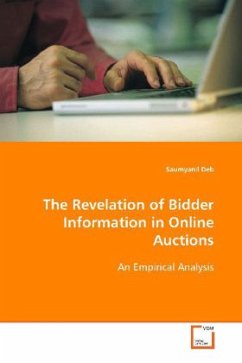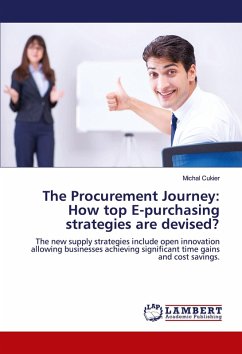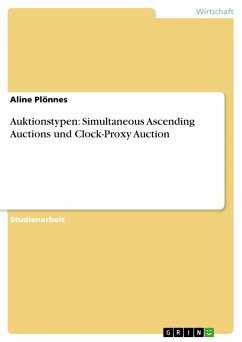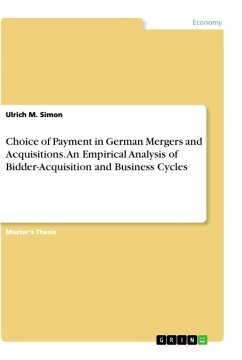This book is based on a Ph.D. dissertation written at
University of Mississippi. It investigates the
decision about the revelation of bidder information
in online auctions. It makes a novel contribution to
the literature by investigating the relationship
between bidder information asymmetry and bidder
experience level. Bidder information is a signal
about the experience level of bidder. Bidder
experience affects the strategic decisions of both
buyers and sellers. Using data from 500 Egyptian
antique auctions (a common value auction) and 500
laptop auctions (a private value auction), following
main results are identified. First, in common value
auctions, sellers earn higher average prices when
they conceal bidder information. In private value
auctions, sellers generate higher average prices when
proportionally more inexperienced bidders are
present, regardless of whether or not they reveal
bidder information. Then, in common value auctions,
late bidding is observed more frequently when bidder
information is revealed. Late bidding is relatively
less common in private value auctions than in the
common value auctions, regardless of whether or not
sellers reveal bidder information.
University of Mississippi. It investigates the
decision about the revelation of bidder information
in online auctions. It makes a novel contribution to
the literature by investigating the relationship
between bidder information asymmetry and bidder
experience level. Bidder information is a signal
about the experience level of bidder. Bidder
experience affects the strategic decisions of both
buyers and sellers. Using data from 500 Egyptian
antique auctions (a common value auction) and 500
laptop auctions (a private value auction), following
main results are identified. First, in common value
auctions, sellers earn higher average prices when
they conceal bidder information. In private value
auctions, sellers generate higher average prices when
proportionally more inexperienced bidders are
present, regardless of whether or not they reveal
bidder information. Then, in common value auctions,
late bidding is observed more frequently when bidder
information is revealed. Late bidding is relatively
less common in private value auctions than in the
common value auctions, regardless of whether or not
sellers reveal bidder information.








